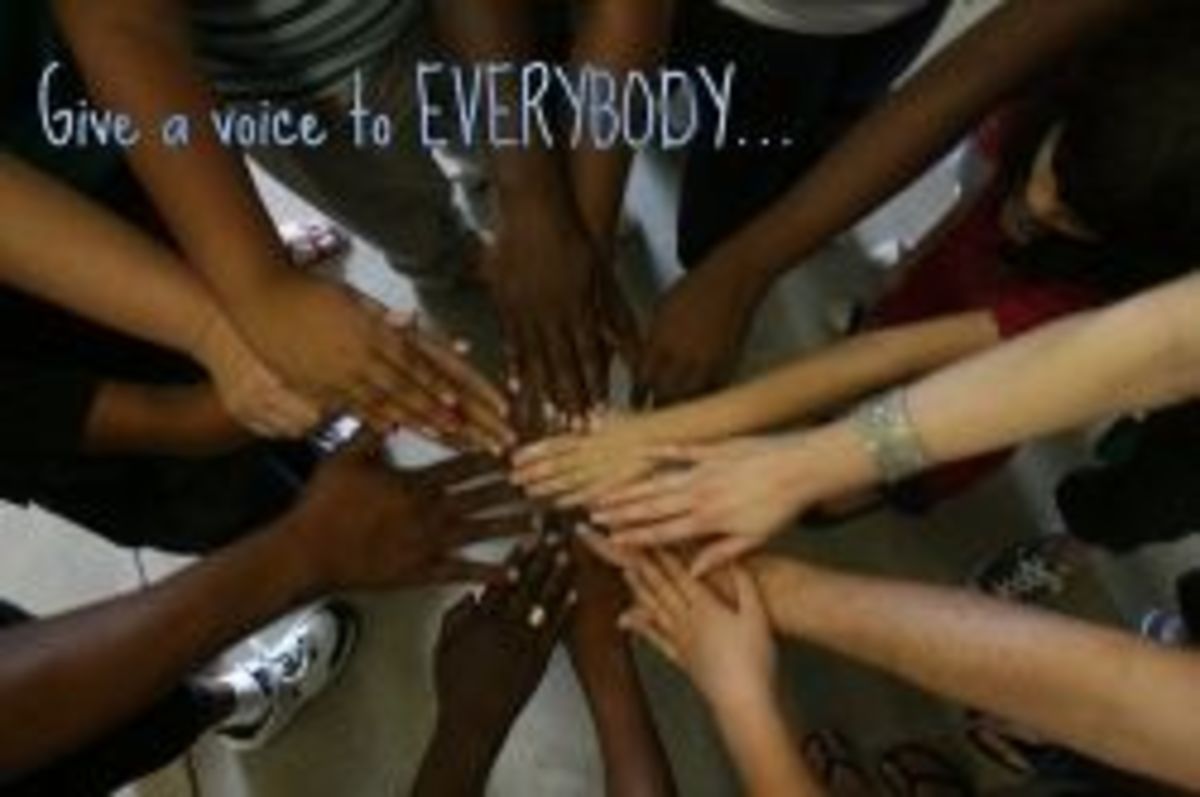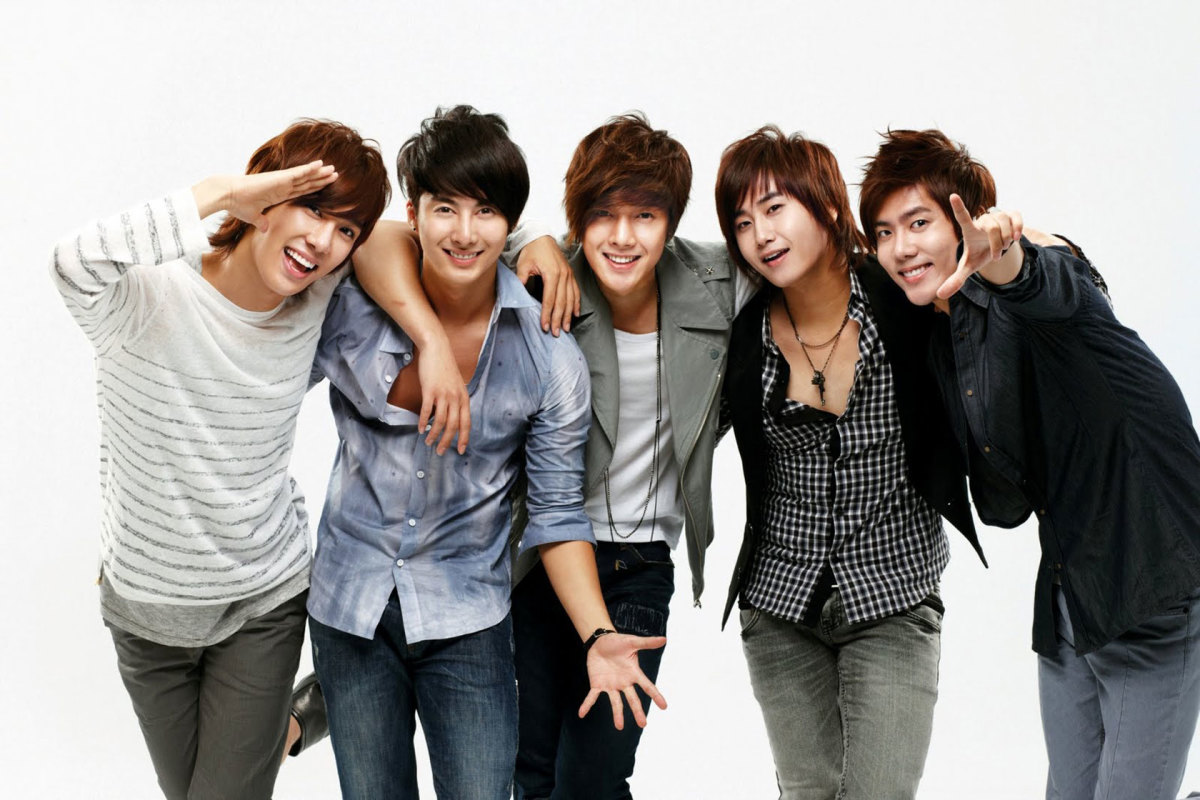Award Ceremonies

Over the past week I have attended two award ceremonies. The first was
one of my cousin's graduation from college, and the second was another
cousin's high school award ceremony. I have to admit both of these
ceremonies took place a private yet religiously affiliated schools, so
maybe other school award ceremonies do not match my critique. However,
these two ceremonies had one thing in common: belittling the recipients.
The
basic theme of each ceremony was that the awards recognized the
individual's and community's achievement. Speeches at these ceremonies
would state that the individual's should be proud of their achievements,
yet use their abilities that earned them their achievements to go on
and help the community. At my cousin's graduation politicians stated
that the graduates should think about remaining in the state to help it
become a better community. At my other cousin's high school award
ceremony faculty members argued that recipients should better the school
community. However, as I stated before, while recipients earned there
awards with their own merit and ability the speakers also argued that
much credit goes to the work of the community such as the school or
state. What I am trying to point out is a contradiction with these award
ceremonies.
The ceremony itself honors individual merit and
ability. Obviously, this means that single people a judged to earn
awards. Groups of people, communities, are not judged, and they do not
receive awards. Each recipients earns a unique individualized award with
their name, and they receive one award. There is not a mass of awards
for every person of the community. There is not one award with all the
names of the community members, or the name of the community in general.
An award ceremony is about the individual. However, politicians and
faculty members are trying to mooch in on individual achievement. Their
basic argument is, "Great job, but you would have failed if you didn't
have us." They are arguing that the individual achievements only prove
the community's success. If this is the case, then there should not be
an award ceremony. If the individuals would have failed without the
communities, the individuals should not be honored. By the speaker's
argument the individuals have accomplished nothing aside from listening
to the community's orders. They are awards for loyalty and obedience, or
conformity. According to the speakers, there is nothing individual
about these awards. Of course, I believe this to be all very incorrect.
The community, or as I will call it institution, may have programs to
assist individuals towards excellence; however, the individual must
choose to utilize these programs. Furthermore, the individual must do
outside work, not required by the institution's programs, in order to
excel. Therefore, the institution may set the standards for an award;
however, the institution cannot ensure that the individuals meet these
standards. The individuals must choose to complete these requirements.
Essentially, all the students could choose not the participate. The
institution or community has nothing to do with this choice.
However,
there is a more important contradiction here, and it is especially
important since these are both religious and Christian institutions.
Awards are about pride, and several of the speakers stated that the
recipients should feel proud. However, Christianity identifies pride as
one of the seven deadly sins; therefore, an award ceremony is a moral
compromise against Christianity. Additionally, within the very same
breath that the speakers stated that recipients should be proud they
also stated the individuals should be modest, thank their community, and
serve their community with the same skills that earned the award.
Basically, they are saying the individual should praise his self, and
destroy his self at the same time. He should identify the award as the
fruit of his own labor, yet also identify it as the fruit of the
community's labor. He should bask in his personal success, his desire to
achieve his best, his own happiness, and then slave away and sacrifice
his desire to achieve his best to the community, so that the community
may be its best. One cannot have it both ways. The second way is
absolutely wrong; however, what is more frustrating is the inherent
moral compromise in their philosophy. It is as if they recognize their
philosophy is wrong, disgusting, and heinous, and cannot completely
adhere to it. That is why philosophies like this survive. No one
recognizes its ultimate conclusion, a community with no individuals just
cogs. They pick and choose principles like they are in a cafeteria.
Unfortunately, these people lack the motivation to use their reason and
discover truth. The man in the back seat of the car has already told
them they are home and they should stop driving. Consequently, they are
satisfied living in a moral compromise where they ask for self praise
and self destruction, where they honor individual and community
achievements with the same awards, and where they demand individuals
sacrifice themselves to cogs of the community under the guise of
personal achievement.
The most disturbing part of these award
ceremonies, however, was at my other cousin's high school award
ceremony. The principal gave the most stomach churning speech I have
ever heard. He told the story of a family who had a dog that had to be
euthanized because it had cancer. When the parents and the doctor spoke
about how short animals' lives are the child stated that he knew why. He
argued that the purpose of life was to learn to be caring and loving
towards everyone. (This is wrong, but I will let it slide for the rest
of the story). However, since dogs already knew how to do this they did
not need to live as long.
This leads to the first problem. After
hearing this the crowd went, "Awe." I wanted to run away, but instead I
glanced over at my other other cousin sitting next to me. The message of
the story thus far is vile and vicious in several very special ways.
First, the message is the good die young, and that is the way it is. Of
course, their definition of good is warped, but that is still the
message. Also, there is this stranger foul hint of fate in their, which
means there is no liberty. Furthermore, this characterizes the
controller of fate as a real dick. He wants you to be good, and then
once you are he kills you.
Now, to continue with the story. The
principal then went on to identify all the things people can learn from
dogs. Premier among these was to learn to love everyone regardless of
their actions and mistakes. Just love people for who they are.

That is the end of the story, and it opens up a whole new can of problems. Firstly, there is another annoying moral compromise these fools are making. The Catholic church, and this school was a private Catholic school, states that animals do not go to heaven because animals do not have a soul. Not only does the story argue that the dog "transitioned" instead of "died," meaning that to dog became something knew like a spirit, like he is some type of transformer, but according to Catholics a soul, not reason, is necessary to be good. Obviously, reason is what makes a man virtuous, and dogs have no reason; therefore, they cannot be virtuous anyway. Morality does not even apply to animals. However, since the Vatican says animals have no souls and souls are necessary to be good, a dog cannot be good. Of course, this is not considered, a moral and logical compromise is made. Picking and choosing like they are in a cafeteria. The second atrocious problem is the argument for unconditional love, meaning to love everyone for who they are, not because of their actions and mistakes. This is an incredibly confusing statement. Love someone for who they are; however, who they are does not include their actions. Then what is the person? What is there to love? Is "who they are" defined by mere physical features? Is the person to be loved cause they have a nose and a pair of eyes? In actuality, the argument is that one must love everyone because everyone exists. That is absolutely ridiculous. Love is about valuing someone; therefore, love is earned it is not freely given. Love is not a hard candy like these clowns will argue, and by arguing so they degrade the meaning of love. One loves another because he values the individual as virtuous, not because the person was merely born. One loves another because he wants to be virtuous, he lives by true virtues, and recognizes that the other person lives by the same true virtues. However, one's virtues are evident in his actions, but one is not supposed to be loved by their actions. Therefore, one must love his son, daughter, wife, mother, and father equally to a stranger, and equally to a murderer, and equally to the man who raped his wife, and equally to the man who stole is car, and equally to the man who knifed his son. Those are all clearly vicious actions, identifying these people as vicious, as undeserving of love. Those men do not live by and thus do not value true virtues like the man. There is no reason to love these men; however, according to the principal they must be loved because they breathe.
- Things I Love and Hate about Karachi
Obviously, sea is the only feature which makes Karachi distinct from all other cities in Pakistan. It is the only city to be blessed with such exquisite, breath-taking locations. A place where Karachiites can go and refresh themselves. - Ark Hotel- World's New Most Unique Hotel








